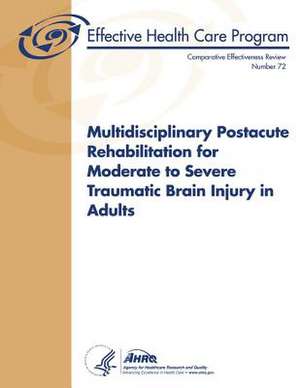Multidisciplinary Postacute Rehabilitation for Moderate to Severe Traumatic Brain Injury in Adults
Autor U. S. Department of Heal Human Services, Agency for Healthcare Resea And Qualityen Limba Engleză Paperback
Preț: 151.20 lei
Preț vechi: 159.16 lei
-5% Nou
Puncte Express: 227
Preț estimativ în valută:
28.94€ • 31.42$ • 24.31£
28.94€ • 31.42$ • 24.31£
Carte disponibilă
Livrare economică 02-16 aprilie
Preluare comenzi: 021 569.72.76
Specificații
ISBN-13: 9781484094846
ISBN-10: 1484094840
Pagini: 154
Dimensiuni: 216 x 280 x 8 mm
Greutate: 0.37 kg
Editura: CREATESPACE
ISBN-10: 1484094840
Pagini: 154
Dimensiuni: 216 x 280 x 8 mm
Greutate: 0.37 kg
Editura: CREATESPACE
